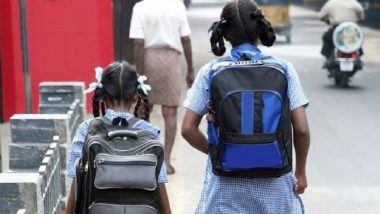London, February 7: India's representation in the annual universities ranking for Asia has improved to 42 from last year's 33 even as several of its institutions registered a decline, according to the list released today which is topped by Singapore.
The 'Times Higher Education' rankings for the region found that the Indian Institute of Science (IISc) in Bangalore, the country's highest-ranked institution, and Indian Institute of Technology (IIT) Bombay each dropped two places to 29th and 44th respectively due to a fall in scores. The IIT Madras saw the biggest decline in the top 200, dropping 41 places to 103 in the 'Asia University Rankings 2018'.
"It is a fantastic achievement that India now has 42 universities in the Asia rankings and that the country has improved on 12 of the 13 metrics underlying the rankings," said Phil Baty, editorial director of global rankings at 'Times Higher Education'.
"While it has not experienced the same rapid improvement as East Asian nations such as China and while some of its institutions faced declines, India's overall rise proves that it can make advances year on year," he said. Baty said India was still among the region's leading higher education country even as several of its institutions have registered a decline.
The main trend of this year's rankings is the continued rise of China, which now claims almost one in five places on the table. Tsinghua University, the country's top-ranked institution, comes in at number two in the overall list after the National University of Singapore, which retained its top ranking. India's rise is partly due to an expansion of the table to include over 350 universities this year, up from around 300 last year.
Two of the country's newcomers to make the top 200 in the list include the Indian School of Mines ranked 141 and Banaras Hindu University which is jointly ranked 194. India achieved a higher average score this year and, on average, its universities saw an improvement in their citation performance. It also picked up points in other areas such as research productivity, even though it tends to lag behind on research environment. Its only area of decline was teaching reputation, the rankings analysis found.
While India, Japan, Pakistan, South Korea, Taiwan and Turkey have all increased their representation, several of their universities have fallen down on the list.
"The South Asian region has increased its representation in the 2018 'THE' Asia University Rankings, but is struggling to maintain its standing in the face of competition from the east and south-east Asia," Baty said. "South Asia will need to work hard to stand out among the heavy competition in the world's largest continent," Baty said. The rankings are structured as global performance tables that judge research-intensive universities across all their core missions: teaching, research, knowledge transfer and international outlook.













 Quickly
Quickly




















